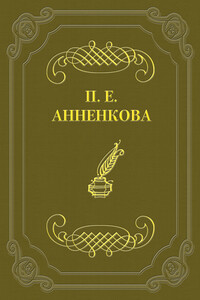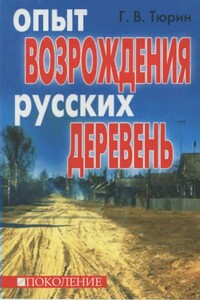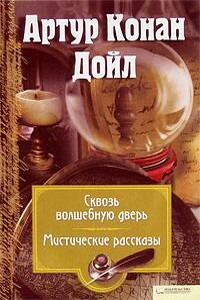The Boy Scouts In Russia - [24]
"Here-I say, Boris, don't do that!" he cried.
"Oh, I forgot that is not your custom!" said Boris. "But I thought you were dead! I thought they had killed you! I saw them bring you out from my window, and if the sentry had not stopped me, I would have thrown myself out to join you! Come with me-my father is here!"
Fred was still dazed. His escape had been so miraculous that he wanted to pinch himself to see if he were still awake. A month before he had been at home in America, envied by the rest of his patrol because he was actually to go to far-off Russia by himself. And since then he had been three times a prisoner, had been in danger of exile to Siberia, and just now had escaped by mere seconds meeting a blast of bullets from a German firing squad, a victim of a war that had not even been dreamed of when he had sailed from America!
But there could be no real doubt of the truth as he followed Boris into the house. In the dining-room where he had been sentenced to death, he came upon Lieutenant Ernst, chatting amiably with half a dozen Russian officers in their white coats. The German grinned at him.
"You're in luck, youngster," he said. "I'm not so sorry, really! They didn't get what they came after, you see."
"No, worse luck!" said a Russian. "How did the old fox know we were coming?"
Ernst only looked wise, and did not answer. Fred was surprised by the way in which captive and captors mingled, seemingly on the most friendly terms. But when he thought it over, it did not seem so strange. Ernst and these Russians knew what a huge thing this war was. Each had his part to play, and would play it as well as he could. But individuals, after all, could not count for much, and the man who was prisoner to-day might be on top to-morrow. Later bitterness and personal hatred might come, but as yet, as Fred began to understand, these men hadn't come to that. They were like players on rival football teams after a hotly contested game. In the play each man would fight his hardest; after the whistle blew, friendship ruled. The referee's whistle had blown when Ernst was caught in a trap.
Boris pushed on into a smaller room. Here Fred saw a man he would have known anywhere as Boris's father, and, for that matter, as some close relative of his mother. Alexander Suvaroff, General of Division in the Russian army, looked very much like Mikail, but there was a sharp difference between them. This Suvaroff was as kindly in aspect as the other was repellent and harsh. His eyes twinkled affectionately when he saw Fred.
"Welcome, cousin," he said. "Even if our chief purpose failed, I am glad we got here in time to save you. You heard that General von Hindenburg got away?"
"I knew that before we were caught," said Fred, "but I didn't know you had come for him."
"Of course they did!" said Boris. "Your wireless message told the staff he was here, and my father led a cavalry raid behind the German lines to try to catch him. But-he ran away!"
The general laughed at the contempt in Boris's tone.
"Of course he ran away!" he said. "I only wonder how he knew we were coming! That was bad luck-because not once did we strike so much as a German patrol as we rode."
"I can tell you," said Fred. "An aeroplane brought word. Its pilot must have seen you as he flew overhead, and suspected that you were coming here."
"So!" Suvaroff frowned. "I did not think of that! However, it is better than what we suspected at first. It looked as if someone at headquarters must have betrayed the plan. Well, it was too good to come true. If we had caught him and his staff, we might have hastened the end of the war by a good many months. Von Hindenburg is the ablest general in Germany, though he has been in disgrace for years. They sent for him as soon as war came. He'll do good work."
Fred was thinking.
"If that aeroplane saw you coming, general," he said, "isn't there danger that they may try to surround you here?"
"Yes, more than danger. They are sure to try to do it! But their cavalry is very slow, and I do not believe they have infantry enough near by to make any trouble for us." He frowned thoughtfully. "There is something very peculiar about the whole situation around here! If von Hindenburg is here, it means that their chief concentration on this front must be here. And yet we get reports of an astonishingly small number of troops! Not more than two corps."
Boris looked eagerly at his father, and then at Fred. But before he could speak General Suvaroff went on, crisply.
"You can ride?" he asked Fred. "Good! I will see that you and Boris have horses. Then we shall start. We can be back in our own lines before daylight."
Fred hesitated. Then Boris took the words from his mouth.
"Father, I want to stay!" he said, eagerly. "It will be safe. I can get back to the house and they can never catch me there, you know! They may not even search for me, but if they do, I can hide from them in the tunnel. And you say the German movement about here is puzzling. Would it not be well to have some way of sending word from here? Ivan is at work. But no matter what he discovers, if we are not at the house, it will do no good. Let me stay!"

«Ваше величество, позвольте матери припасть к стопам вашего величества и просить, как милости, разрешения разделить ссылку ее гражданского супруга. Религия, ваша воля, государь, и закон научат нас, как исправить нашу ошибку. Я всецело жертвую собой человеку, без которого я не могу долее жить. Это самое пламенное мое желание. Я была бы его законной супругой в глазах церкви и перед законом, если бы я захотела преступить правила совестливости. Я не знала о его виновности; мы соединились неразрывными узами. Для меня было достаточно его любви…».

В книге рассказывается история главного героя, который сталкивается с различными проблемами и препятствиями на протяжении всего своего путешествия. По пути он встречает множество второстепенных персонажей, которые играют важные роли в истории. Благодаря опыту главного героя книга исследует такие темы, как любовь, потеря, надежда и стойкость. По мере того, как главный герой преодолевает свои трудности, он усваивает ценные уроки жизни и растет как личность.

Текст воспроизведен по изданию: Письма Бичурина из Валаамской монастырской тюрьмы // Народы Азии и Африки, № 1. 1962.

Плачевная ситуация в российских деревнях известна всем. После развала масштабной системы государственного планирования исчезли десятки и сотни тысяч хозяйств, произошел массовый отток населения из сельских районов, были разворованы последние ценности. Исправление ситуации невозможно без эффективного самоуправления в провинции.Организованный в 1997 году Институт общественных и гуманитарных инициатив (ИОГИ) поставил перед собой цель возрождения сельских районов Архангельской области и добился уникальных результатов.

В настоящей книге Конан Дойл - автор несколько необычных для читателя сюжетов. В первой части он глубоко анализирует произведения наиболее талантливых, с его точки зрения, писателей, как бы открывая "волшебную дверь" и увлекая в их творческую лабораторию. Во второй части книги читатель попадает в мистический мир, представленный, тем не менее, так живо и реально, что создается ощущение, будто описанные удивительные события происходят наяву.